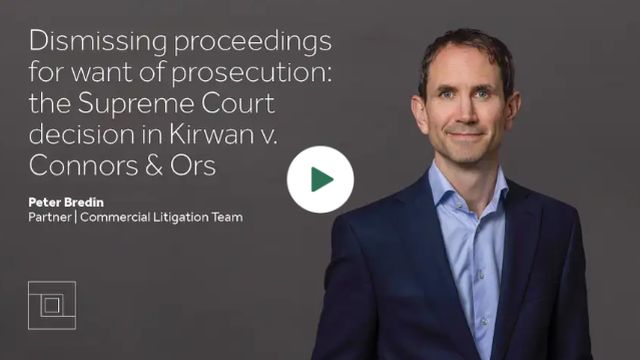Peter Bredin’s articles from Dillon Eustace are most popular:
- within Litigation and Mediation & Arbitration topic(s)
Dillon Eustace are most popular:
- within Litigation, Mediation & Arbitration, Corporate/Commercial Law and Finance and Banking topic(s)
- with readers working within the Banking & Credit industries
In a recent decision, the Irish Supreme Court has set out a new and simplified approach to applications to dismiss cases for want of prosecution.
In summary, the new approach is as follows:
- Where there has been less than two years of inactivity, a case should only be dismissed if it is an abuse of process or a fair trial would not be possible;
- If there has been two years of inactivity, a case may be dismissed if there is some prejudice or other factor justifying dismissal;
- After four years of inactivity, the case should be dismissed if it is dependent on oral evidence, unless the plaintiff shows compelling reasons not to dismiss. Prejudice to the defendant need not be proven, but will help in obtaining a dismissal;
- After five years of inactivity, the courts should feel free to dismiss unless there are exceptional circumstances, for example an educational disadvantage on the part of the plaintiff or where there has been serious misconduct by the defendant in the conduct of the proceedings.
In this video, Peter Bredin, Partner in our Commercial Litigation Group, outlines the background to this decision and the Kirwan v Connors case.
Originally published 09 July 2025.
The content of this article is intended to provide a general guide to the subject matter. Specialist advice should be sought about your specific circumstances.


